Embry-Riddle Students Present Forward-Looking Space Research at International Conference
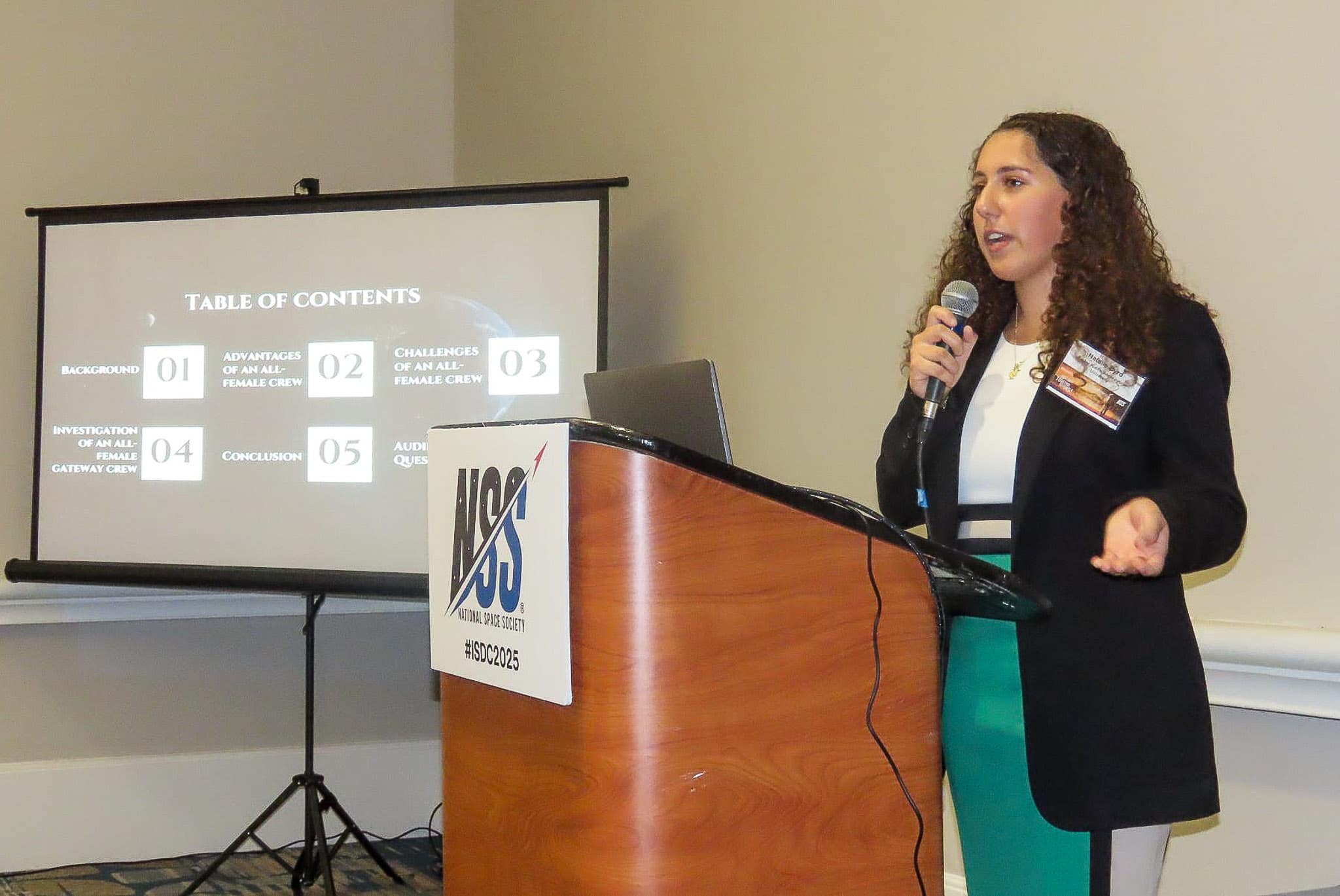
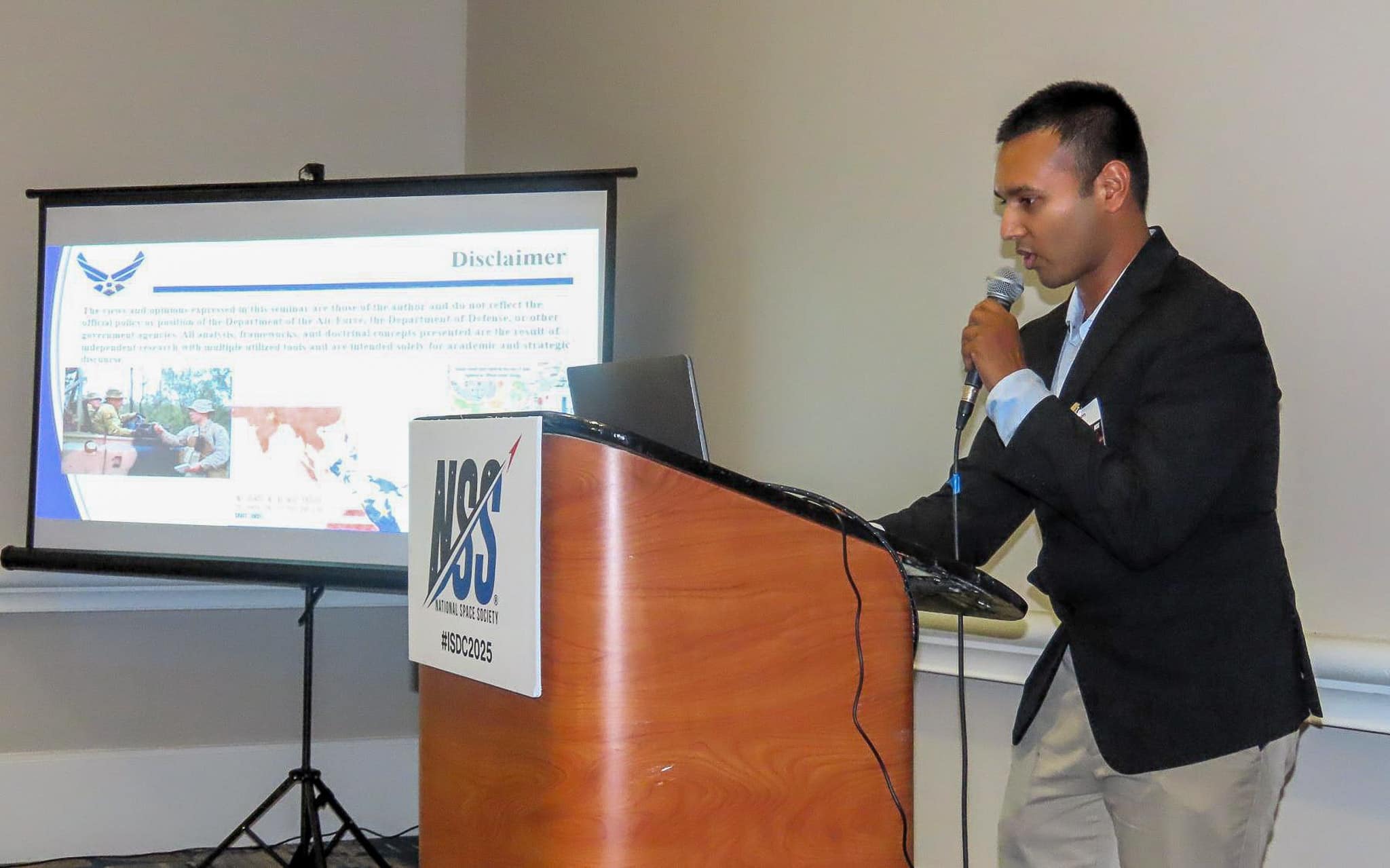
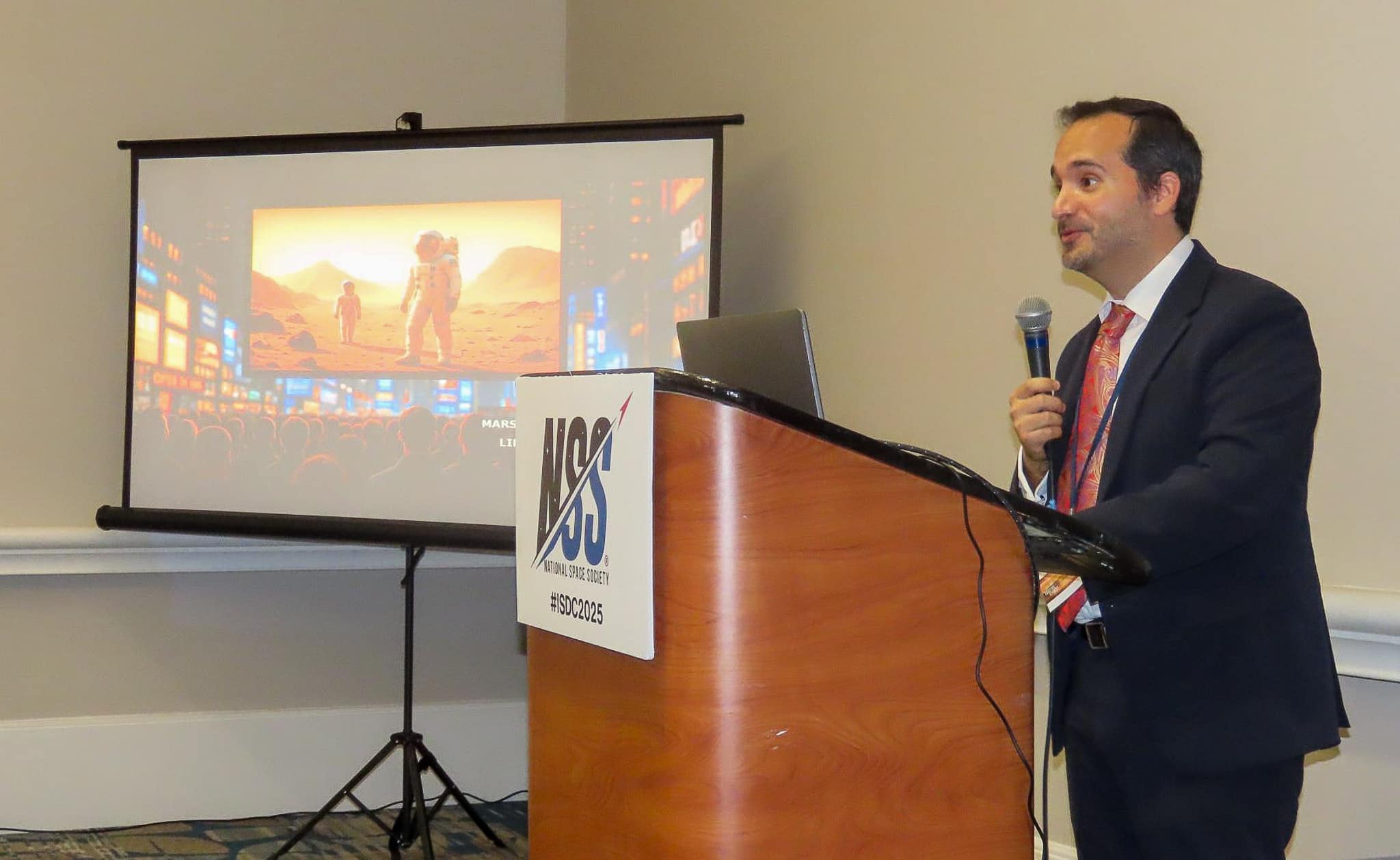
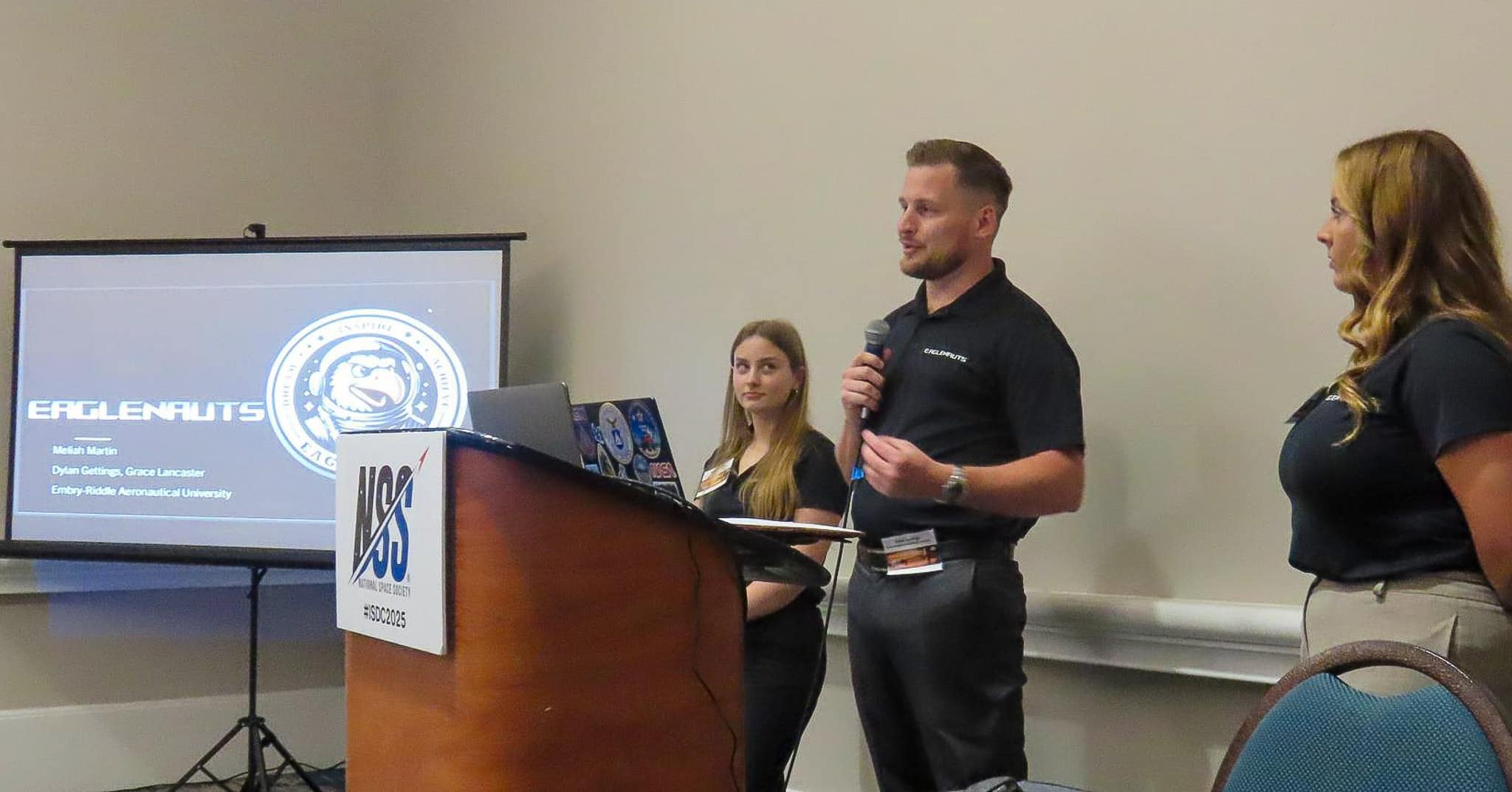
Five Embry-Riddle Aeronautical University students showcased their innovative space research on a global stage this past summer.
The students presented at the 2025 International Space Development Conference (ISDC), which was held in June and hosted by the National Space Society, a non-profit educational and scientific organization specializing in space advocacy.
The five Eagles — graduate students Mo Tasrif Khan and Christian Yeara and undergraduate students Natalie Byrd, Meliah Martin and Margaret O'Brien — were selected to participate in the Orlando conference as part of the inaugural Rising Stars program, which spotlights exceptional university students and early-career professionals making meaningful contributions to space exploration, development and settlement, said Burt Dicht, managing director of membership for the National Space Society.
Khan, a Space Operations graduate student who will be transitioning into the U.S. Air Force, presented his research on cybersecurity, space warfare and Indo-Pacific intelligence. He said the conference allowed him to network with others in the field and exchange ideas.
“My primary goal is to work in cybersecurity and intelligence,” said Khan, who is from Virginia. “I’m very grateful for this conference. Networking-wise, I met military and civilian leaders at the conference and, above all, the perspective I’ve gained is that humanity needs to be more unified moving forward, instead of fragmented.”
Yeara, who is also pursuing his graduate degree in Space Operations, discussed his research on public and industry perceptions about sending humans to Mars. He said the conference was an ideal venue to gather feedback from people who were passionate about increasing human presence in space.
“Attending ISDC and being part of the Rising Stars initiative allowed me the opportunity to network and be exposed to cutting-edge concepts and visionary projects from across the space community,” he said. “Professionally, I gained new connections and insights that will inform both my research and future career path.”
Byrd, a senior majoring in Space Operations and Aerospace Physiology, shared research she conducted with two other students that examines what an all-female crew on NASA's Gateway lunar space station would look like.
“I had never presented at a professional conference like that before,” she said. “I was able to participate in speed-mentoring with aerospace professionals and heard a lot of different perspectives about the future of space travel.”
Undergraduate Margaret O'Brien examined the legal framework facilitating space mining and resource extraction.
Meliah Martin, along with her research partners Grace Lancaster and Dylan Gettings, discussed their work on Eaglenauts, a student-led organization and hands-on training program dedicated to developing the human side of space exploration.
“Eaglenauts isn’t just a research project,” said Gettings, a U.S. Marine Corps veteran and Aerospace Engineering student. “It’s a mission to prepare future space explorers from the inside out: mentally, emotionally and operationally. Our goal is to build the kind of leaders, communicators and decision-makers that future space missions will depend on.”
Martin, who presented on the group’s research for a real-time cognitive stress monitoring tool, emphasized the growing demands on human performance in long-duration missions.
“We made a lot of connections with industry professionals that are helping us build our curriculum for next semester,” said Martin, a sophomore Aerospace Physiology major from Iowa.
“The five Embry-Riddle students were selected based on the quality, originality and relevance of their projects, as well as their potential to shape the future of the space industry,” said Dicht, with the National Space Society. “Our goal is to give these emerging space innovators a platform to share their ideas, inspire others and gain valuable experience presenting in a professional setting.”
Gettings, an aerospace engineering student and Eaglenauts president, was grateful for the support of the organizers of the ISDC Rising Stars initiative. This included Dicht and Robert S. Katz, CEO and executive director of World Innovation Network.
“Burt and Robert do a lot to support the younger generation and students,” said Gettings. “They’ve given students like us the chance to be seen and heard, and that opportunity means everything to those building the future of space exploration.”

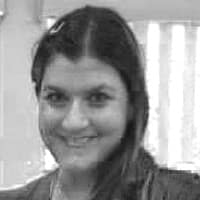 Melanie Stawicki Azam
Melanie Stawicki Azam